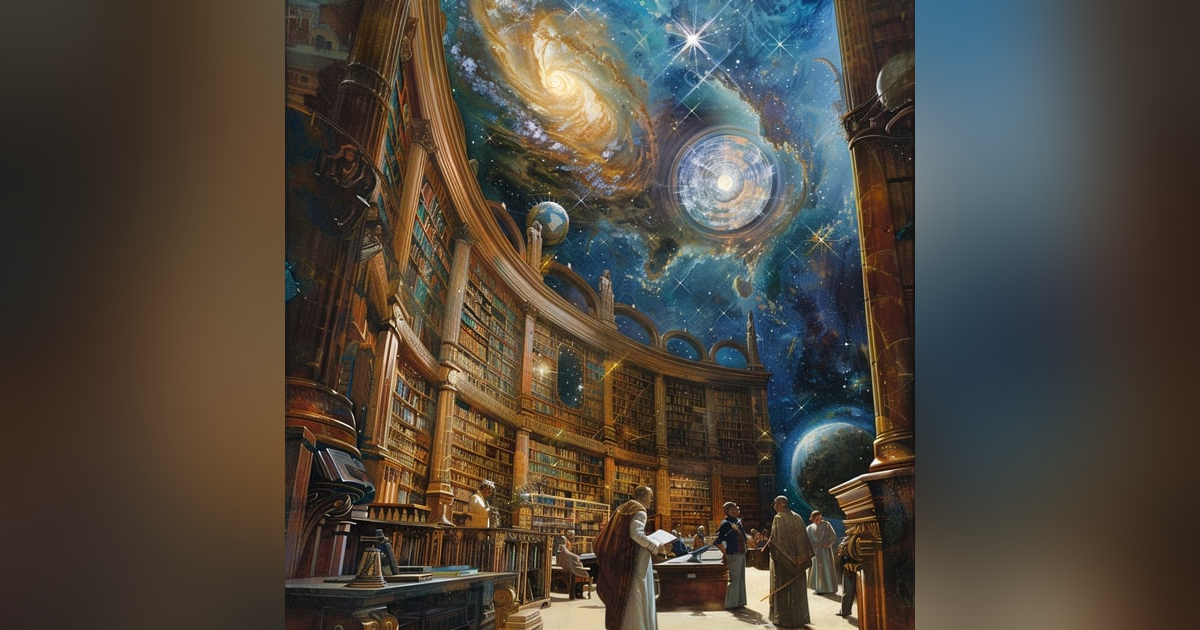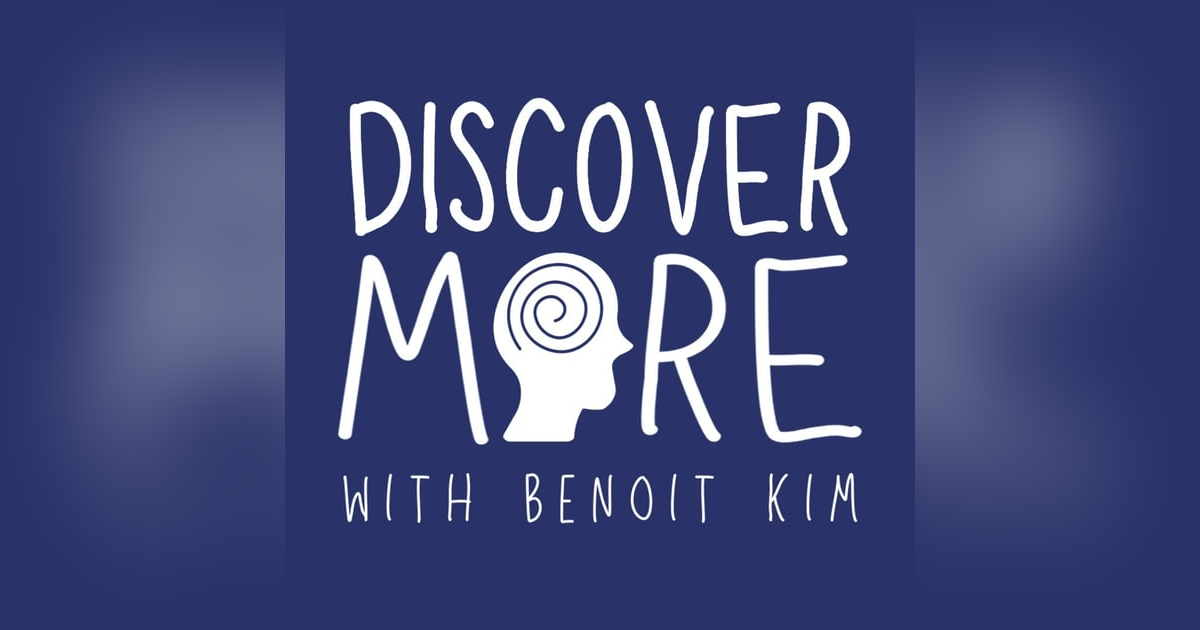#156. Astrophysicist Explains God’s Existence - Dr. Jeff Zweerink


Is it possible to prove that God is real through science?
The biggest argument against Christianity is that there is no empirical evidence to support God’s existence.
Today’s conversation will explain the existence of God through astrophysics.
Dr....
Is it possible to prove that God is real through science?
The biggest argument against Christianity is that there is no empirical evidence to support God’s existence.
Today’s conversation will explain the existence of God through astrophysics.
Dr. Jeff Zweerink is an astrophysicist, published author, senior research scholar, and project scientist at UCLA.
Jeff earned a PhD in astrophysics from Iowa State University and worked as a research physicist for 16 years before working for 7 years as a project scientist at UCLA.
Expect to learn about the great contribution of Christian scientists in the scientific enterprise, why science is no enemy to Christianity, the dynamic nature of known realities, the truth behind time travel, why the universe can prove God’s existence, and much more in this deep thinking podcast episode.
Welcome to Discover More. Let’s get this started!
Let's get this started.
*
Rate The Podcast:
https://ratethispodcast.com/discovermore
Show Notes
Jeff’s Website: HERE
Jeff’s Books: HERE
Jeff’s LinkedIn: HERE
YouTube Channel: HERE
*
Subscribe to Youtube: HERE
Discover More Website: HERE
More short-form on Instagram: HERE
*
Discover More is a top social sciences podcast for independent thinkers with mental health as a through-line. Looking for deep thinking? Let’s get this started
*
Listen to all full-length episodes on audio:
Apple Podcasts: HERE
Spotify: HERE
*
Thank you for Discovering More with us!
Discover More: The Scientific Enterprise and Christianity
Discover more is a podcast for independent thinkers who appreciate the importance of nuances with mental health. Today's guest is Doctor Jeff Zierink, an astrophysicist, published author, senior research scholar, and a project scientist at UCLA. Learn about the great contribution of christians in the early scientific enterprise. Why science is no enemy to Christianity.
Jeffrey Hawkins: Science and Christianity
Jeffrey Toobin: Why isn't Christianity antithetical to science, contrary to many people's popular belief? He says often science and Christianity are portrayed as being different methodologies, different conclusions. But in practice, they just really aren't, he says.
God's Creation
For us, per our faith, we believe it was created by this ground architect, the designer that we call God. There's not this hostility or there need not be this hostility between science and Christianity. A lot of christians were indisputably great contributors scientifically in the past.
Do the Laws of Physics Change Through Life?
LZ: Why do the laws of physics change throughout the universe? LZ: It's a philosophical idea, but a very christian idea. Every experimental test we've thrown at general relativity, it's passed with flying colors.
Do Science and Christianity Interplay?
There's this interesting connection between the way we think and the way the world works. I know very little quantum mechanics, but it's definitely going to come up. A lot of people will use that as fodder to argue that science and Christianity are antagonistic towards one another.
How does the rise of quantum mechanics and physics impact your work
Quantum mechanics and quantum physics are both form and matter. We're in some sense bigger than the universe. Christianity makes more sense of that, because we're a union of spiritual and physical. How does the rise of quantum mechanics and physics impact your work currently?
Questions about quantum mechanics in the Bible
Is there anywhere in the scripture, the Bible, that loots or references quantum mechanics? I don't find anything saying, oh, yes, we live in a world with quantum mechanics. But there are aspects of scripture that parallel what we're finding. It seems contradictory, but it's really more paradoxical.
The Paradoxical Truth of Emotions
People struggle with the idea that you can be happy and sad at the same time. That's because humans are multi dimensional. How you think about that dramatically impacts what happens at the end of that period.
Does Love Need to Be Effortless?
Westerners believe that love needs to be effortless. Love feels effortless, but true love is an active extension of yourself for the other. Great commitment requires great act of service and requires tremendous effort.
How Old Is the Earth?
Jeffrey Toobin: How old is the earth based on your scientifical knowledge and theological understanding? He says can we dovetail that into the creationism aspect? Toobin says the answer is yes. He says the universe is about 14 billion years old and humanity is about 100,000 years old.
The Dynamic Nature of Language
A critical function of virtually all humor is that I'm taking something that you understand using it somewhere else, and it's connected. There's just this really dynamic nature, but yet you can see the connectedness of all the languages at the same time.
Oh, Time Travel!
Time travel is a heavy hitter question that everybody wants to know. Einstein's theory of relativity says that space and time are dynamic quantities. As you go incredibly fast, you actually slow move slower through time. There are some challenges that arise with that.
Confirmatory Bias, Implicit Bias
Another through line I just sensed now is like, confirmation bias, implicit bias, and echo chamber. I think explicit bias can be vetted through rigorous, like, cultivated practices, having different systems evaluations. But implicit bias is very difficult. That's what makes implicit.
The importance of diversity of thoughts
The importance of diversity of thoughts, intellectually or otherwise. If you're only subjugated to your own echo chamber, you're not going to see the common ground outside of your tribe. The only way to get a little bit more unbiased over time is to optimally.
Democracy and the diversity of ideas
The author says bringing new ideas often contributes to the advance of science. Having a lot of ideas is not the goal, he says. Having ideals that help you get closer to what's true is the goal.
Naturalism and the Problem of Traffic
When civil engineers designed highway and freeway systems, they only consulted with other civil engineers. The best way to mitigate or minimize traffic is exit points, like diversion from the main way. More lanes does allow more people, but you also have to do.
Atheism and Universal Truth
There are subsets of universal truth, at least from my understanding. And the more universal truth we can identify through, like, dancing and flirting with different systems, I think that solidifies our idea that it is intricately designed. Otherwise, universal truth doesn't make any sense.
The Physical Cost of Loneliness
Loneliness is equivalent to about ten to 15 cigarettes a day. A day. Not to mention the psychophysiological aspect of loneliness and social isolation. And depression. That is ridiculous.
Fine-tuning the universe
Doctor Justin: Can you explain what the fine tuning argument slash theory is in terms of how our universe is uniquely equipped to support life within our known universe? He says God created the universe with a purpose. Justin: Does our universe look ordinary, or does it look like it's tuned for a purpose?
God's design of the universe
The idea that our universe looks designed is not a controversial statement. The question is, is it really designed, or does it just look that way? If I want people to understand my arguments, I need to invest time to understand theirs.
Continues: Reasons To Believe
Jeff: I really do think Christianity is true. I want people to know the kind of relationship with God that I have. Long form conversation is a dying art. I urge everyone to check out Jeff's contents, reasons to believe. If you enjoyed today's conversation, I ask you to share this episode with one friend.





